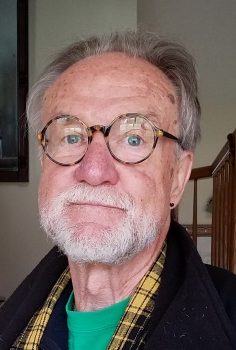Over the years, when asked where I was from, I would answer: “Hamilton, Missouri.” Occasionally I would add: “It’s the birthplace and hometown of J.C. Penney!” There was a time when ninety-nine percent of those I was in conversation with at least knew J.C. Penney, the store, if they did not actually know there was James Cash Penney, the man.
Penney’s early years in Hamilton proved to be of great importance. As his daughter, Mary Frances, told an interviewer in 2010: “I believe the reason for this is that he really liked, respected and enjoyed all sorts of people, except those who ‘put on airs.’ He never forgot his roots as a poor boy in Hamilton.” So I have at least one thing in common with Penney! Well, I also graduated from J.C. Penney High School.
Penney was born on Sept. 16, 1875. His father, for whom he was named, taught him a great deal about farming, livestock and certain aspects of range conservation. In 1895, Penney’s father set up a retailing apprenticeship for his son with John M. Hale, the proprietor of a local department store in Hamilton (which ultimately became the 500th store in the Penney chain of stores).
After a two-year stint with Hale, Penney moved to Longmont, Colo., because of the threat of tuberculosis. There he was hired by Thomas Callahan, a chain store merchant, whose philosophy was to sell only quality merchandise on a cash basis with a comparatively low markup. In 1902, at the age of 26, Callahan offered Penney a managing partnership in a new Golden Rule store in Kemmerer, Wy. Penney eventually purchased the Golden Rule stores and transformed them into the J.C. Penney chain.
Speaking of another Golden Rule, Penney was a creative and thoughtful philanthropist of significance (his philanthropy and the Great Depression caused the loss of his $40 million fortune in the 1930s; he ultimately recovered it). He also had a gift for hiring talented, hard-working people such as Earl Corder Sams, a Kansas farm boy; aside from Penney himself, no associate had greater influence in the early expansion of the chain. In a letter to a friend back in Kansas, Sams wrote: “He [Penney] is one of the best business men in the west without exception. I am now a partner of his and think more of him than any man on earth.”
Penney loved being connected with agriculture, as is detailed in a book I recently came across, “J.C. Penney, The Man, The Store and American Agriculture,” by David Delbert Kruger (University of Oklahoma Press, 2017, 346 pages, $29.95). He was involved in the development and breeding of grand champion Guernsey dairy cattle, Percheron draft horses, mules, Black Angus cattle, and Hereford cattle. He acquired his father’s original farm in Hamilton, which is northeast of Kansas City, and expanded it to several thousand acres of ranching and farmland under the banner of Home Place Farms.
After suffering a massive heart attack in his sleep, Penney died at age 95 on Feb. 12, 1971, a time when life in small-town America was undergoing drastic change to the detriment of Main Street stores like his own. On the morning of his funeral, 1,660 J.C. Penney stores across all fifty states shut down in remembrance of their founder.
The J.C. Penney store on Main Street in Hamilton has been closed for many years. However, my memories of growing up in small town rural America remain important to me, just as they did for J.C. Penney.
Contact Ted Ayres at ted.ayres@shockers.wichita.edu.









